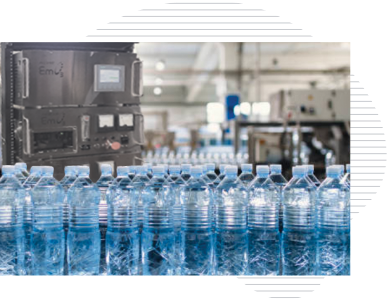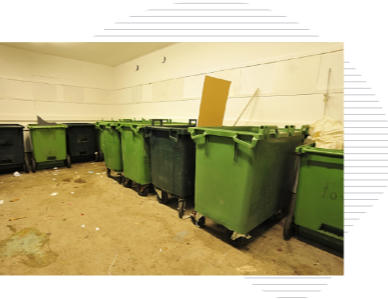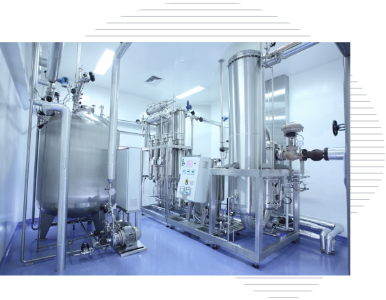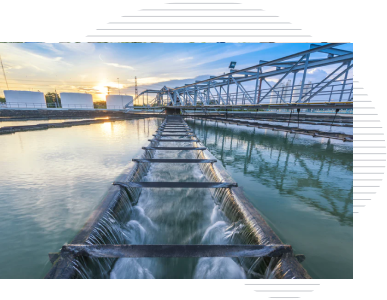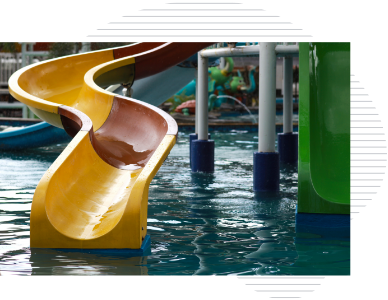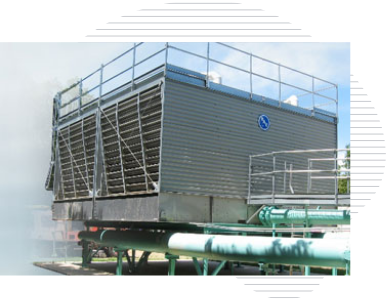Ozone Generator: A Winning Solution for Aquariums and Aquaculture
In aquaculture, ozone is one of the most critical component for maintaining good water quality. Thus, having a reliable water treatment system is essential for aquaculture facilities. Aquarium ozone generators and aquaculture ozone generators are the key to a successful system.
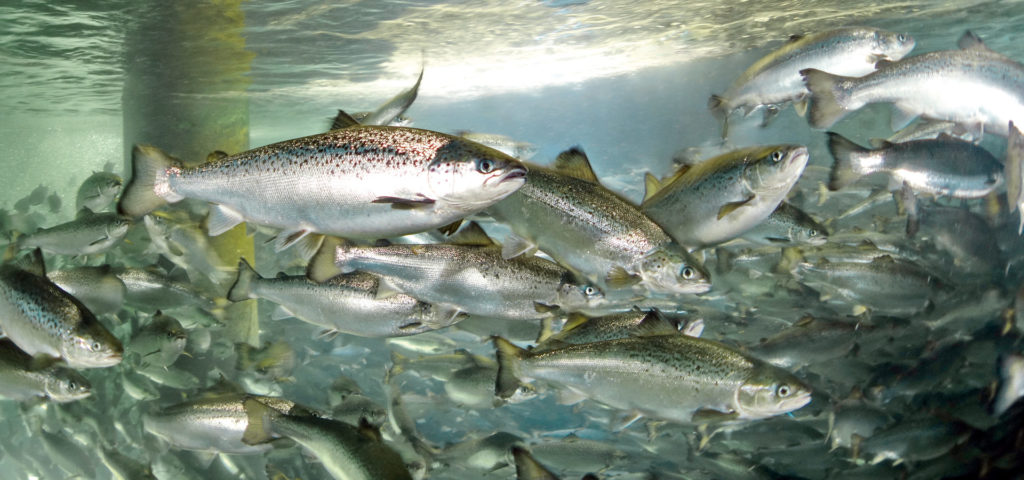
Ozone and Aquariums: The Perfect Combination
Efficient and dependable aquarium ozone generator systems are crucial in ensuring water treatment and purification, which in turn guarantees the long-term health and sustainability of marine species in aquariums. Whether it’s freshwater, saltwater, or recirculated aquatic systems (RAS), ozone has become a necessity in aquariums. In fact, ozone technology is now used in numerous fish farming systems worldwide to maintain clear and clean water.
Advantages of Ozone in Aquariums
An aquarium ozone generator is a vital piece of equipment for maintaining aquatic and marine life. Ozone is a sustainable solution that is not only good for the environment, but it also has several advantages, including:
The TaurusMC ozone water treatment system from EMO3 offers the flexibility, reliability, and scalability needed to meet all aquatic life support systems for saltwater and freshwater species. Please contact us for a complete solution.
Ozone in aquaculture: a global application
Aquaculture has the potential to significantly contribute to global food security by using sustainable technologies. Ozone water treatment is a crucial environmental component for fish farms and the aquaculture industry. Ozone recirculation aquatics systems (RAS) are a critical component for any fish farm looking to build a sustainable operation. The recycled water is filtered and treated with ozone to kill any dangerous pathogens it may contain, ensuring the highest possible yield and quality of livestock.
To ensure optimal yield and superior breeding quality, recycled water is filtered and treated with ozone to eliminate harmful pathogens. Recent research has demonstrated that the use of ozone in aquaculture not only improves fish health by reducing diseases but also enhances water clarity and overall quality. This helps make fish farms more sustainable and efficient by increasing productivity, reducing costs associated with chemical treatments, and minimizing environmental impact.
To guarantee optimal yield and breeding quality, recycled water is filtered and treated with ozone to neutralize any harmful pathogens it may contain.
Advantages of ozone in aquaculture
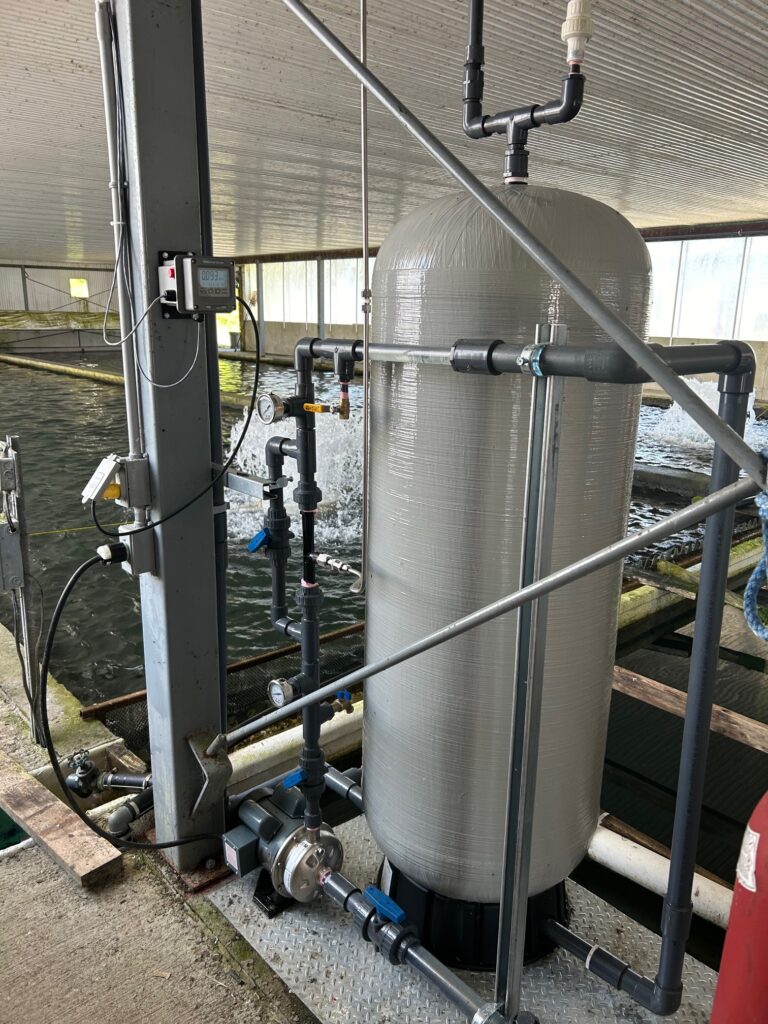
Other applications
Agri-Food
Ozonation of air and water is increasingly valued in the agri-food industry. On-site creation of ozone eliminates the need for chemicals such as chlorine, hydrogen peroxide, and peracetic acid. Moreover, it destroys a wide range of harmful bacteria, including Salmonella, E. coli, and norovirus, providing environmental and financial benefits.
Odor Treatment
Treating the air with ozone is an efficient and all-natural way to eliminate unpleasant odors caused by aromatic molecules. Commercial buildings' plenum air return systems, restaurant ventilation pipes, and waste rooms often use ozone to create a healthy environment, odor free.
Industrial
In the context of industrial water treatment, ozone treatment is able to oxidize wastewater contaminants such as cyanide and arsenic. Moreover, it facilitates the precipitation of several metals, including iron and manganese, as well as organic materials that are challenging to process biologically. Ozone technology offers a lasting solution for wastewater reuse and recycling, which is in high demand in arid regions around the world.
Municipal
Ozone treatment has been tried and tested for decades and is the best way to ensure safe drinking water for everyone. Ozone kills a variety of bacteria, viruses, and odor-causing substances in water, including hydrogen sulfide (H2S). Furthermore, ozone removes water coloration due to its oxidizing properties. Ozone is the best option for treating the emerging pollutants in municipal wastewater.
Water Parks
To maintain the quality of their water and protect the health of visitors, water parks are increasing the use of ozone to reduce harmful chlorine products. Ozone treatment eliminates bacteria easily and quickly while significantly reducing the need for chlorination, which irritates the skin and eyes. Over-chlorination can also produce trihalomethanes, which are harmful to human health. Ozonation provides a better experience and a safer environment for all visitors.
Cooling tower
Ozonation of water in cooling towers enhances the ability to control bacteria like Legionella, making it a highly effective and safe method. Ozone is produced on-site and is extremely stable at various pH levels. Ozone works 3,000 times faster than chlorine in water treatment of this type. Ozone replaces the ongoing requirement for biocides, offers financial efficiency, and provides peace of mind knowing that the water has received appropriate treatment.

